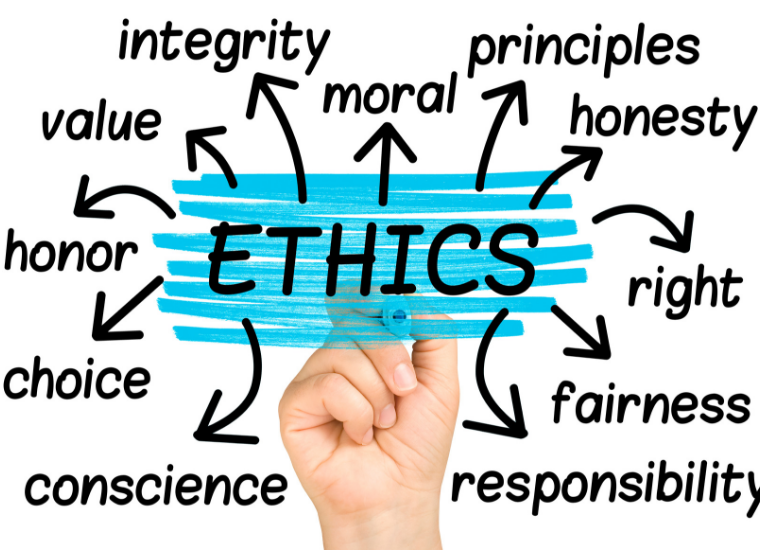Our world of work after the pandemic is very different from what we knew earlier. Companies have started leveraging technology at a break-neck speed. Due to remote working, employees work away from the workplace cocooned in their work environments. We have all witnessed frauds and unethical practices all over the world despite people working together in close proximity of one another. After each fraud was investigated, we know that there were red flags and suspicions, but they were either ignored or could go unnoticed. Greed for money, power and favours is universal and would always be there. The big question before the business leaders today is to examine their current systems and processes if they can identify the early signs of unethical behaviours in the new world of work and prevent them.
Risk perceptions
Typically, frauds happen when the highly educated people in positions of power choose to take decisions to grant an unlawful favour to someone, a group of people or an organisation. Whether it was the Enron scandal, IL&FS scam, Satyam Computers fraud or Mundhra scam, everywhere someone in a position of power decided to either ignore the norms or take some actions which can result in large gains for a group of people. A lot of money was lost, huge embarrassment was caused to the reputation of individuals, corporations and nations; jobs were lost and the system took a beating. These large organisations and systems employ the best talent to build the best systems and processes. The sharpest minds in the business are in the financial institutions, media and the regulatory bodies of the Governments; yet these happened!
Could these unethical behaviours be detected early and prevented?
A closer look at the roots
Ethical behaviours are not limited to financial integrity, rather we can see them at work every day in the nooks and corners of an organisation.
Customers face service issues such as accessing the salesperson or account manager, getting a timely response, receiving their orders on time and as per their requirements, getting the right bills, organising a return of the merchandise and so on. Similarly, all stakeholders of a business face challenges and look for resolution. They expect fair practices in business, quick resolution and adequate flexibility from an organisation.
Some of them might look for short-cuts to gain an advantage over their competition or make personal gains. The frontline employees and their managers in an organisation deal with these. Sometimes they act in good faith and apply principles of rational thinking and natural justice. However, sometimes they might fall prey to the inducements offered to them and deviate from the normal course.
And there are occasions when employees are simply negligent and adopt short-cuts out of laziness. Every organisation faces these pressures in their departments such as sales, service, procurement, quality assurance, finance and internal audit. The behaviours of the manager in such cases set the norms for the team. The way they resolve issues, advise their teams to deal with the deviations from the established norms or processes, govern their teams using the process metrics set the ground rules for the team. Sometimes, these rules could be localized and isolated to specific locations and teams; and sometimes, they could be widespread across the organisation.
Such incidents have been occurring frequently across regions and industry sectors.
Retard the decline in ethical standards
A few decades ago, teachers at schools were respected very well by society and hence, the students and their families. Teachers played an important role in shaping the early lives of the kids. Even if the syllabus did not cover subjects on moral values and ethical standards, they took the initiatives to teach universal values needed for humanity. Today’s schools and the teachers there are very different from those of the yesteryears.
Similarly, most of us lived in joint families where grandparents, uncles, aunts and cousins played an active role in the development of the early lives of the children. Normal discussions at homes were enriched by the stories and experiences of people we loved and respected. We did not have electronic media and the internet compete with the time our kids got with their parents to appreciate moral values. Our lives today run very differently and have a void in the inputs on moral values.
With the advent of work from home, people are increasingly separated from their colleagues and do not experience the social pressures against straying from the right path. Moreover, as more and more business processes of an organisation are happening on a public cloud, unscrupulous elements have been on the prowl phishing confidential information and committing cybercrimes. We have to protect ourselves from these, for sure.
Our organisations need to implement the right systems and processes to make sure that the processes run smoothly and at the same time have the makers and checkers. The right amount of internal controls are essential and the tone of the leadership team at the top has to be crystal-clear on unethical behaviours. Violations of ethical behaviours have to be showcased in the organisation as case studies and widely publicised so that the occasional deviations are questioned and corrected before disasters take place.
We have to launch a mission of educating our children on moral values and ethical behaviours right in the schools. At the same time, we have to reform our educators to adopt these values and behaviours in their day to day lives and integrate them into their pedagogy. Teachers and parents are role models for our young children. Let’s work on the teachers and the children. Let’s hope that the parents will get reformed over the next few decades. We have to address this at the roots!
Read also:
- #GetTheBestOutofUs: Cause the Positive Effect
- #GetTheBestOutofUs: How Employees are Looking for Value in a Job
- #GetTheBestOutofUs: Benefits of Leading with Values
- #BuildingTomorrow: Values are the primary anchor
- #BuildingTomorrow: Ethics at work
- #BuildingTomorrow: Maintaining the company culture in the new workplace


